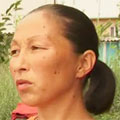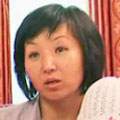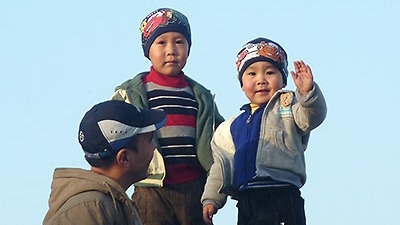Challenge
In April 2010, antigovernment demonstrations in the Kyrgyz Republic culminated in the removal of the president and the formation of a provisional administration. Political and social tensions in the south of the country escalated, resulting two months later in three days of social unrest. According to official data, over 300 people were killed and at least 2,500 injured, with many more internally displaced persons. Damage to infrastructure was estimated at about US$350 million, equivalent to 7 percent of GDP. Subsequently, after years of steady decline, poverty increased to 37 percent in 2011.
By October 2010, the provisional administration had drawn up a new constitution, laying the groundwork for a parliamentary democracy by shifting the balance of power to an elected prime minister. Addressing governance failures and perceptions of widespread corruption were seen as essential to avoid further unrest. The events of 2010 left the government weak and fragmented.
Solution
The World Bank Group quickly responded to the new government’s request for support through the Economic Recovery Support Operation (ERSO). The operation was designed to tackle both short- and medium-term concerns. In the short term, the operation bolstered government efforts to restore stability and safeguard social protection. The ERSO was also aligned with the government’s medium-term strategy of strengthening transparency and governance, restoring private sector confidence, and reviving the economy. In addition to the government’s draft strategy, the Bank drew upon analysis in the Joint Economic Assessment (JEA), prepared six months earlier by the International Monetary Fund (IMF), the Asian Development Bank (ADB), and the World Bank Group. During implementation, the World Bank provided technical assistance in several areas, including the financial and energy sectors and capacity building for economic management.
Results
Key outcomes include:
- in public financial management, annual budgets are consolidated and now publicly available online;
- in state property management, a parliamentary-debated, 2012–14 privatization plan for national assets was submitted in April 2012;
- losses in the provision of domestic energy declined from 29.3 percent in 2009 to 24.3 percent in 2011, collection rates increased from 0.81 soms per kWh in 2009 to 0.94 soms per kWh in 2011, and transparency improved in revenue distribution and strategic decision making;
- in mining, compliance with the Extractive Industry Transparency Initiative (EITI) was attained: 46 and 57 companies reported under EITI in 2011 and 2012, respectively;
- the financial sector was stabilized through support for the central bank’s takeover of the country’s main — and financially distressed — bank (AUB), preventing contagion;
- in social protection, 497 families affected by the 2010 violence received a compensatory payment of 1 million soms (US$20,000); the number of “rights-based” categorical benefits was reduced from 35 to 29, improving the targeting of benefits to the poor; and the guaranteed monthly allowance for poor families with children was increased from 240 soms in 2009 to 350 soms in 2011. More than 120,000 families received this payment in 2012.



